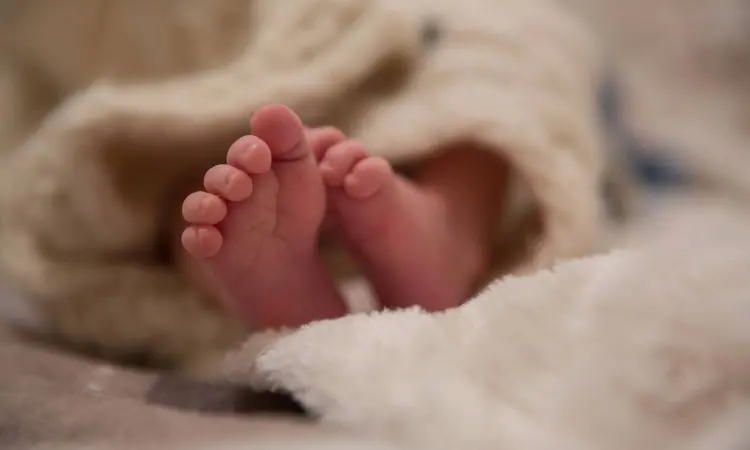- Home
- Medical news & Guidelines
- Anesthesiology
- Cardiology and CTVS
- Critical Care
- Dentistry
- Dermatology
- Diabetes and Endocrinology
- ENT
- Gastroenterology
- Medicine
- Nephrology
- Neurology
- Obstretics-Gynaecology
- Oncology
- Ophthalmology
- Orthopaedics
- Pediatrics-Neonatology
- Psychiatry
- Pulmonology
- Radiology
- Surgery
- Urology
- Laboratory Medicine
- Diet
- Nursing
- Paramedical
- Physiotherapy
- Health news
- Fact Check
- Bone Health Fact Check
- Brain Health Fact Check
- Cancer Related Fact Check
- Child Care Fact Check
- Dental and oral health fact check
- Diabetes and metabolic health fact check
- Diet and Nutrition Fact Check
- Eye and ENT Care Fact Check
- Fitness fact check
- Gut health fact check
- Heart health fact check
- Kidney health fact check
- Medical education fact check
- Men's health fact check
- Respiratory fact check
- Skin and hair care fact check
- Vaccine and Immunization fact check
- Women's health fact check
- AYUSH
- State News
- Andaman and Nicobar Islands
- Andhra Pradesh
- Arunachal Pradesh
- Assam
- Bihar
- Chandigarh
- Chattisgarh
- Dadra and Nagar Haveli
- Daman and Diu
- Delhi
- Goa
- Gujarat
- Haryana
- Himachal Pradesh
- Jammu & Kashmir
- Jharkhand
- Karnataka
- Kerala
- Ladakh
- Lakshadweep
- Madhya Pradesh
- Maharashtra
- Manipur
- Meghalaya
- Mizoram
- Nagaland
- Odisha
- Puducherry
- Punjab
- Rajasthan
- Sikkim
- Tamil Nadu
- Telangana
- Tripura
- Uttar Pradesh
- Uttrakhand
- West Bengal
- Medical Education
- Industry
Early caffeine and LISA administration may lower frequency of intubation in newborn with RDS

A groundbreaking randomized trial has brought hope for preterm neonates facing respiratory distress syndrome (RDS) by exploring an innovative strategy to reduce the need for endotracheal intubation in their crucial first 72 hours of life. They found that early administration of caffeine along with less invasive surfactant administration significantly reduces the need for endotracheal intubation in the first 72 hours of life for preterm neonates with respiratory distress syndrome.
The study results were published in the New England Journal of Medicine: Evidence.
Optimal management of respiratory distress syndrome (RDS) in preterm neonates involves early CPAP initiation and titrated oxygen. Less invasive surfactant administration (LISA) offers a promising alternative to traditional intubation, aiming to reduce associated risks while ensuring effective respiratory support. Hence, researchers from California conducted a trial to investigate whether early administration of caffeine and LISA would decrease the need for endotracheal intubation in the first 72 hours of life (HoL) compared with caffeine and CPAP alone.
The trial, conducted between January 2020 and December 2022, focused on the combination of early caffeine administration with less invasive surfactant administration (LISA) compared to the standard caffeine and continuous positive airway pressure (CPAP) approach.
Preterm neonates, born at 24 to 29 weeks and 6 days of gestational age, were randomly assigned to receive either intravenous caffeine followed by LISA (intervention) or caffeine followed by CPAP (control). The primary goal was to determine the frequency of neonates requiring endotracheal intubation or meeting respiratory failure criteria within the first 72 hours of life.
The results were striking.
- In the caffeine and LISA group, only 23% of neonates required intubation or met respiratory failure criteria within the critical 72-hour window, compared to a substantial 53% in the caffeine and CPAP group.
- Even more encouraging, this significant reduction held true even after adjusting for gestational age strata, emphasizing the potential of the combined caffeine-LISA approach (odds ratio, 0.227; 95% confidence interval, 0.112 to 0.460; P<0.001).
- The trial, while focusing on efficacy, also assessed adverse events.
- Interestingly, adverse events were similar between the two groups, indicating that the innovative caffeine-LISA approach did not introduce additional risks.
- Notably, the occurrence of bronchopulmonary dysplasia, a common concern in preterm infants, was notably lower in the LISA group (26%) compared to the control group (39%).
The study's findings have significant implications for neonatal care, suggesting that the early administration of caffeine along with less invasive surfactant administration could represent a pivotal shift in managing respiratory distress in preterm infants. The reduced need for endotracheal intubation is a crucial outcome, as intubation poses risks and challenges for these fragile neonates.
As the neonatal care landscape continues to evolve, this innovative approach provides a beacon of hope for improving outcomes in preterm infants facing respiratory challenges. Minimizing the risks associated with intubation and offering a less invasive alternative could mark a transformative advance in neonatal care practices. The potential long-term benefits, especially the reduced occurrence of bronchopulmonary dysplasia, underscore the positive impact of this combined caffeine-LISA strategy, offering a glimpse into a brighter future for the tiniest patients in neonatal intensive care units.
BDS, MDS
Dr.Niharika Harsha B (BDS,MDS) completed her BDS from Govt Dental College, Hyderabad and MDS from Dr.NTR University of health sciences(Now Kaloji Rao University). She has 4 years of private dental practice and worked for 2 years as Consultant Oral Radiologist at a Dental Imaging Centre in Hyderabad. She worked as Research Assistant and scientific writer in the development of Oral Anti cancer screening device with her seniors. She has a deep intriguing wish in writing highly engaging, captivating and informative medical content for a wider audience. She can be contacted at editorial@medicaldialogues.in.
Dr Kamal Kant Kohli-MBBS, DTCD- a chest specialist with more than 30 years of practice and a flair for writing clinical articles, Dr Kamal Kant Kohli joined Medical Dialogues as a Chief Editor of Medical News. Besides writing articles, as an editor, he proofreads and verifies all the medical content published on Medical Dialogues including those coming from journals, studies,medical conferences,guidelines etc. Email: drkohli@medicaldialogues.in. Contact no. 011-43720751


